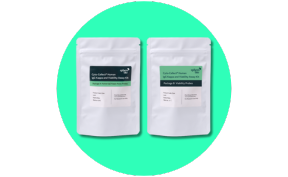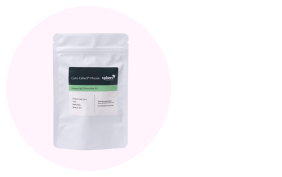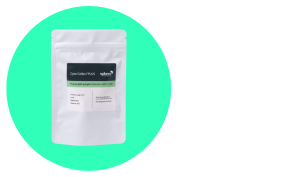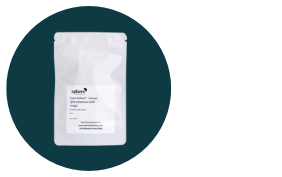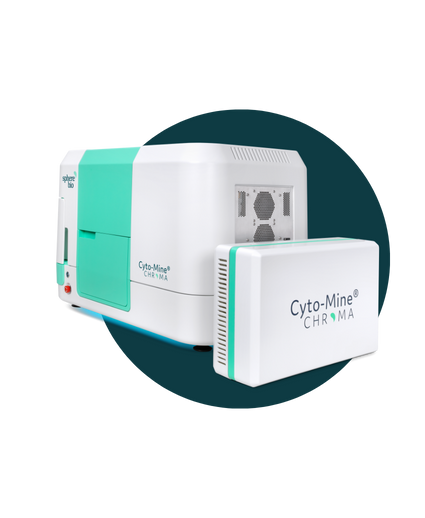Streamlining cell line development at FUJIFILM Diosynth Biotechnologies
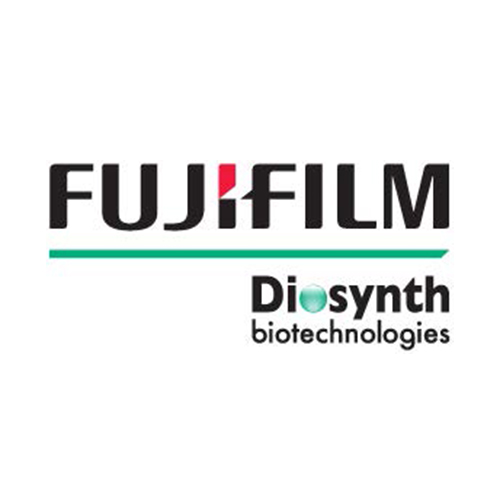
Summary
Scientists at FUJIFILM Diosynth Biotechnologies have transformed their cell line development processes using the Cyto-Mine® platform, achieving faster and more productive workflows—transitioning from transfection to productive cell lines within approximately 10 weeks.
Addressing key challenges in cell line development
Specialist contract development and manufacturing organizations (CDMOs) offer technical expertise and capacity in cell line and process development to optimize production of biological medicines for biotherapeutic manufacturers. In this commercially competitive field, CDMOs are under increasing pressure to deliver robust and productive stable cell lines within shortened timeframes, to drive faster transfer of therapeutic molecules into clinical development. This must be achieved while maintaining excellence concerning biological product quality.
Emerging biotherapeutics have begun to focus on novel antibody fragments and bispecific antibodies, which are more challenging to produce in stable cell line expression systems at high enough titers for commercial drug development programs and large-scale manufacture, compared with standard monoclonal antibody molecules. Technologies that provide better predictive screening capabilities and higher throughputs than those traditionally used in cell line development laboratories have been sought to meet the growing urgency and demand for unique biotherapeutic molecules. Conventional manual screening techniques, such as colony picking and limiting dilution cloning, are time-consuming, laborious and restricted concerning the number of cells that can be processed or analyzed within a given period.
Innovative solutions for monoclonality assurance
Industry regulators, such as the Food and Drug Administration (FDA), require evidence of monoclonality regarding cell lines used in the production of biological medicines. Manufacturers must prove that each cell line is derived from a single parent cell in order to avoid costly delays to market authorization and clinical trial programs. Traditional approaches do not allow visualization of individual cells upon initial seeding, making demonstration of monoclonality difficult or impossible in certain cases.
“Excellent instrument, using innovative technology. We have integrated the Cyto-Mine® into our cell line development workflow which has allowed us to shorten our timeline without compromising on the quality of the cell lines that we generate. We have found the instrument to be very user-friendly. The support offered by Sphere Bio has been excellent and we are very happy with the purchase. The ability to image the picodroplets prior to dispensing into a 96-well plate together with a 'heat-map' of the 96-well plate is a feature that we find very useful."
Dr Alison Young
FUJIFILM Diosynth Biotechnologies
Cyto-mine® in action: Efficiency and precision redefined
Cyto-Mine® is a single cell analysis platform that enables individual cells to be encapsulated within picolitre-sized aqueous droplets in a biocompatible carrier oil (picodroplets). FUJIFILM Diosynth Biotechnologies has harnessed this technology to develop a single-step cloning process, which removes bottlenecks in the cell development process and improves both accuracy and efficiency.
Each picodroplet provides a controlled, defined and adjustable environment that maintains cell viability (Figure 1). Single cells may be screened with speed and precision and secreted proteins are trapped within the picodroplets, making them easily accessible for characterization.

Multiple procedures and assays within the cell line development pathway are miniaturized and integrated within Cyto-Mine®, allowing tasks that would previously have taken weeks to complete to be undertaken within one day. Approximately 200,000 individual cells can be screened in a matter of hours using this approach, compared with around 10,000 cells with manual analysis techniques.
Quality and quantity of molecular product are enhanced as screening is now conducted at an early stage so that only cells expressing the protein of interest, and the best-performing cells within this pool, are taken forward in the development process. Workflows have been significantly shortened, from around 25 weeks to approximately 10 weeks (Figure 2), Importantly, single cells may be visualized using Cyto-Mine® and accurate monoclonality data can be provided to support regulatory submissions.

Enhancing productivity with a user-friendly system
Cyto-Mine® is designed using integrated user-friendly software, that requires minimal specialist training to understand and implement effectively. Overall efficiency and productivity in the cell line and process development team at FUJIFILM Diosynth Biotechnologies has been enhanced through the application of Cyto-Mine®. Scientists spend less time conducting laborious manual procedures and are able to complete a greater number of projects within a given timeframe. This allows them to apply their specialist skills and expertise to other important aspects of their work. Motivated by the possibilities for Cyto-Mine® in enhancing or refining other features of their research, scientists at FUJIFILM Diosynth Biotechnologies are now exploring further applications for this technology platform.
High-throughput cell line development and biotherapeutic production
Benefits of picodroplet technology in biotherapeutics
-
Efficient Processes: Streamlined and simplified steps
-
High Throughput: Screening of large cellular populations (200,000 cells)
-
Assured Monoclonality: Reliable single-cell isolation
-
Automation: Less manual intervention for better efficiency
The Next Generation: Cyto-Mine® Chroma
Automate. Accelerate. Analyze millions of cells in a single day.
Think Cyto-Mine®, but supercharged, enabling multiplexing and greater assay flexibility to fit your needs. It means that you can examine vastly greater numbers of cells — and isolate the most valuable ones— with unparalleled precision.
